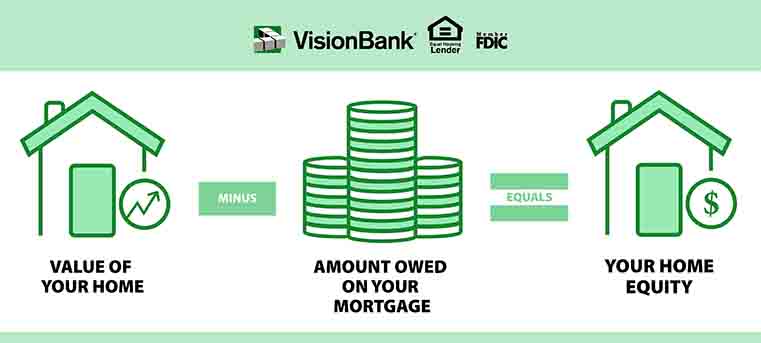Home equity represents the portion of your home that you truly own, calculated by subtracting your outstanding mortgage balance from the current market value of your property. This essential financial metric can serve as a powerful resource, offering homeowners the opportunity to leverage their investment into cash that can be used for a variety of purposes. Many individuals are unaware of how to tap into this valuable asset, but understanding its potential can significantly impact their financial strategies and goals.
When considering ways to unlock home equity, several commonly used options can provide immediate liquidity. These include:
- Home Equity Loans: A lump-sum loan based on the equity you’ve built, repayable over a fixed term.
- Home Equity Lines of Credit (HELOC): A revolving line of credit that allows you to borrow against your equity as needed, similar to a credit card.
- Cash-Out Refinancing: Refinancing your existing mortgage for more than you owe and taking the difference in cash.
Each of these methods comes with its own set of advantages and risks, making it crucial for homeowners to carefully analyze their financial situation. Properly managing home equity can not only provide immediate financial relief but can also contribute to long-term wealth-building strategies, helping homeowners achieve their larger investment goals or immediate cash needs.
Exploring Various Strategies to Access Your Home Equity
Accessing your home equity can provide a financial lifeline, allowing homeowners to tap into the value of their property for various needs. One popular method is through a home equity line of credit (HELOC), which functions like a credit card. This gives you the flexibility to borrow only what you need, when you need it, making it an attractive option for ongoing expenses such as home improvements or education costs. Another avenue is a home equity loan, where you can secure a lump sum amount with fixed interest rates, making it suitable for significant one-time expenditures like consolidating debt or funding a major purchase.
Additionally, some homeowners consider cash-out refinancing, a process that allows you to refinance your existing mortgage for more than you owe and take the difference in cash. This strategy can also lead to favorable long-term interest rates, offering both immediate cash flow and potential savings on interest payments. Other innovative approaches include utilizing a reverse mortgage, suitable for seniors looking to supplement their retirement income without selling their home. It’s essential for homeowners to carefully evaluate these options and consult with financial advisors to fully understand the implications and potential long-term effects on their financial health.
Navigating the Risks and Benefits of Home Equity Loans
Home equity loans provide homeowners with an opportunity to tap into the investment they’ve built in their properties, offering substantial financial advantages. Borrowers can leverage their home equity to fund significant expenses such as home renovations, education costs, or unexpected medical bills. Unlike unsecured loans, these loans often come with lower interest rates because they are backed by the value of the home itself. Some key benefits of home equity loans include:
- Lower Interest Rates: Typically lower than credit cards or personal loans.
- Fixed Monthly Payments: Predictable payments make budgeting easier.
- Tax Deductions: Interest may be tax-deductible if used for home improvements.
Despite their advantages, it’s crucial for homeowners to navigate the potential pitfalls carefully. By borrowing against the equity of your home, you are increasing your debt load and risking foreclosure if you are unable to meet the repayment terms. Additionally, the market fluctuations could diminish your home’s value, leaving you owing more than your property is worth. Homeowners should consider the following risks:
- Variable Interest Rates: Some loans may have variable rates that could increase over time.
- Fees and Closing Costs: Unexpected charges can diminish the financial benefit.
- Market Risks: Real estate values can decline, impacting your equity position.

Smart Ways to Use Your Home Equity for Cash Needs
Using your home equity can be a smart financial move when you need quick access to cash. One of the most popular methods is through a home equity line of credit (HELOC). This flexible approach allows homeowners to borrow against their equity as needed, similar to a credit card. With generally lower interest rates compared to personal loans, a HELOC can be an ideal solution for managing expenses. Whether you’re looking to fund home improvements, consolidate debt, or cover unexpected medical bills, a carefully planned HELOC can help you meet your financial goals without breaking the bank.
Another effective strategy is to consider a cash-out refinance. By refinancing your existing mortgage to a higher loan amount and receiving the difference in cash, you can utilize a significant portion of your home equity. This option is especially worthwhile if you can secure a lower interest rate than your current mortgage, effectively reducing your monthly payments while providing necessary funds. Homeowners often use this cash for substantial investments, such as real estate ventures or starting a business, which can lead to increased equity in the long run.